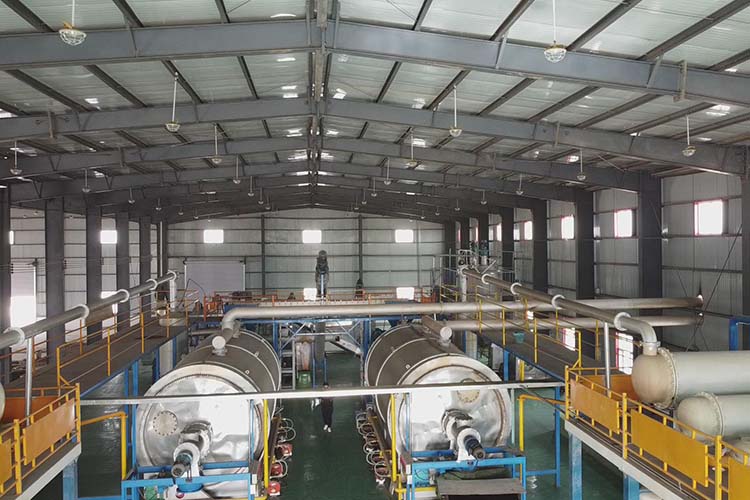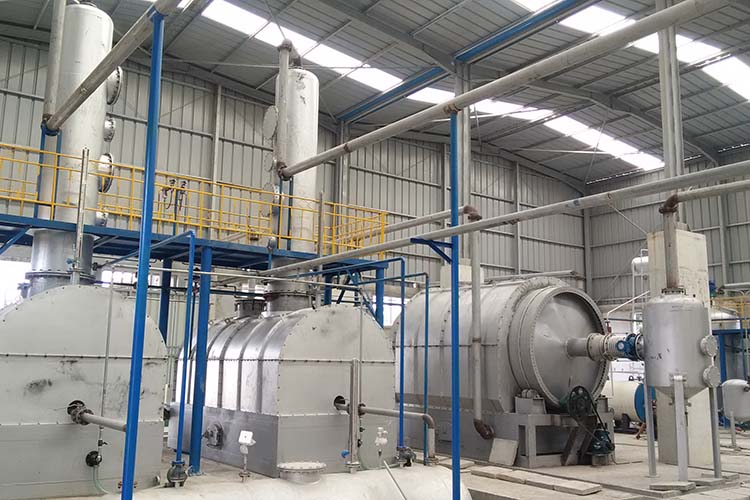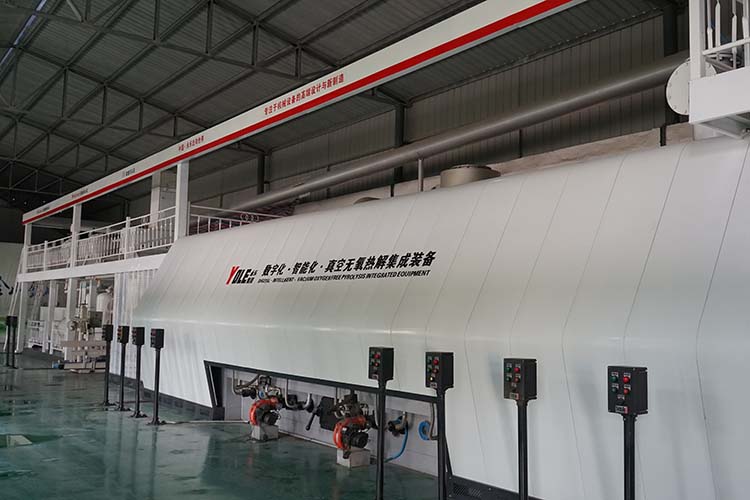In the field of urban and rural domestic waste treatment, Yongle Group's domestic waste treatment equipment employs an oxygen-free low-temperature continuous pyrolysis process, providing an innovative solution for the harmless and resource-based treatment of mixed domestic waste. The fully enclosed structural design ensures staged pyrolysis through precise temperature control in an oxygen-free environment, effectively avoiding the generation of harmful substances such as dioxins. The integrated system includes modules for preliminary crushing, intelligent temperature-controlled pyrolysis, gas-solid separation, and energy recovery, enabling continuous automated waste processing adaptable to urban and rural areas of varying scales.

The pyrolysis process converts domestic waste into three products: inert solid carbon residue, pyrolysis fuel oil, and bio-natural gas. The carbon residue undergoes metal recovery through magnetic and eddy current separation technologies, with the remaining material meeting environmental standards for use as roadbed material or ceramic aggregate. The purified pyrolysis fuel oil can directly power industrial boilers or be recycled into the equipment's heating system. The bio-natural gas, after purification, serves as the primary thermal energy source for the equipment, forming an internal energy recycling system.
Featuring modular design, the equipment flexibly adjusts operational parameters according to regional waste composition characteristics. For areas with high kitchen waste content, the system automatically optimizes pyrolysis temperature curves to enhance gas production efficiency, while prioritizing fuel oil conversion rates for refractory substances. This intelligent adaptability enables stable operation without strict waste sorting requirements, with demonstration projects already established across multiple cities and counties.

The technological innovation demonstrates significant environmental benefits. Professional monitoring confirms substantial reductions in total waste volume and weight, alleviating landfill space pressure. Certified carbon emission reductions outperform traditional treatment methods. Wastewater generated during processing meets industrial water reuse standards after purification, achieving near-zero pollutant discharge throughout the system.

The equipment enables flexible distributed treatment networks through modular configurations. Regional processing centers can be established in small-to-medium counties, while urban clusters deploy parallel multi-unit systems. Operational data confirms stable thermal energy supply through self-sufficient energy systems, significantly reducing external energy dependence. As domestic waste volumes continue to grow, this technical approach offers a viable pathway integrating ecological benefits and resource regeneration for urban-rural environmental governance.
Yongle Environmental Protection is mainly engaged in the research and development, production and sales of complete sets of technical equipment for organic solid waste disposal and comprehensive utilization. Production and manufacturing, domestic waste treatment equipment, tire pyrolysis equipment, medical waste disposal equipment, hazardous waste disposal equipment, and achieve efficient and comprehensive utilization of resources through independently developed low-temperature anaerobic pyrolysis equipment technology solutions.
Tags:Analysis of resource utilization technology of urban and rural domestic waste treatment equipment,Domestic waste disposal,YONGLE GROUP
 Latest news
Latest news


























